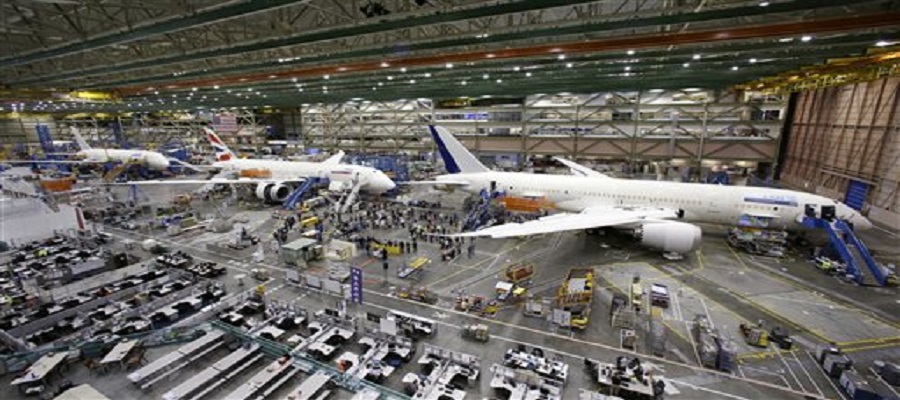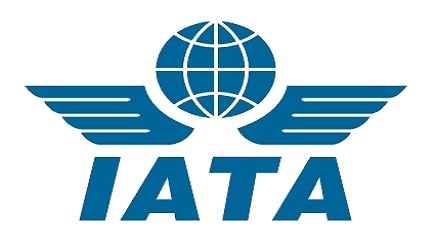General News
Growing Demand for Aviation Connectivity Is At Risk-IATA

The International Air Transport Association (IATA) has continued to advice governments on empowering aviation to deliver more value, noting that growing demand for aviation connectivity is at risk.
IATA urged governments to re-commit themselves to the ideals of airline deregulation and the free market, so as to permit aviation to continue to deliver the benefits of global connectivity that make possible $2.2 trillion worth of economic activity.
Tony Tyler, IATA DG and CEO said that “Airlines are the transit system for the global economy; and they have transformed commerce every bit as thoroughly as the automobile transformed America. But our ability to meet the growing demand for connectivity is at risk”.
Addressing the Wings Club in New York, during the week, Tyler said the threat does not come from market forces. “Our biggest challenge comes from governments that are engaging in what I would broadly describe as regulatory backtracking.”
“This is a global issue, but it is particularly distressing to find that the United States, where this industry was born and which led the world in liberalizing domestic and international air transport, seems to be moving forward into the past. Apparently policy makers in Washington no longer trust the invisible hand of the marketplace to maintain a vibrant, competitive industry—despite overwhelming evidence that the market is working. The net result is not just bad for airlines, but for air travelers and the economy.”
Tyler cited regulation, distribution, consolidation and taxation as four areas where the market is not being permitted to operate efficiently.
He said: “The airline industry may be deregulated to the extent that carriers are permitted to set their fares according to demand. But regulators aim to design the details of competition in a manner that is wholly at odds with how other industries are treated and with the workings of the free market. In particular, they appear determined to hold commercial aviation to a different business standard than they impose on any other form of transportation—or consumer facing activities.
“It is totally appropriate to set simple minimum customer service standards. But that’s not what’s happening. Regulators are micro-managing our businesses, telling us how we may advertise our services, how long we must hold a reservation that has not been paid for and how we are to manage operational disruptions regardless of the cause. These regulations impose a huge penalty on the economy and ultimately raise the cost of air travel for all consumers.”
Airlines are committed to ensuring the safety and comfort of passengers and recognize the need for passengers to have access to basic protections during their journey.
To that end, IATA members recently affirmed a set of core principles on consumer protection that aim to strike a balance between protecting passengers while maintaining industry competitiveness and recognizing the power of the marketplace.
“Standards enable innovation and efficiency and make it possible for incumbents and new entrants to work from the same blueprint. We believe an NDC standard will enhance the air travel shopping experience for passengers. But, let me assure you of a few things. NDC will operate within the same privacy laws that govern every other business. That is no change from today. But, by giving travel agents more information, there will be greater transparency. The NDC standard will enable much richer comparison shopping for travel products, not just the base fare, but the entire spectrum of offerings.”
Tyler argued that aviation needs to be treated like other industries when it comes to consolidation. “It is a fact that consolidation has resulted in a healthier, more profitable industry and that is good news for travelers as well, because it means airlines have the financial wherewithal to invest in their products and services. And US government data show that service is improving on the things that matter most to customers such as punctuality and baggage delivery. Yet airlines face higher hurdles than other businesses when it comes to mergers and acquisition.”
“We recently were reminded of this when the Department of Justice (DOJ) announced it would sue to prevent the merger of American Airlines and US Airways. I am not an expert on US antitrust policy, but I do know something about the airline industry and I have to agree with those in the investment community and elsewhere who have found DOJ’s arguments to be faulty and unpersuasive.”
Aviation is taxed at levels far exceeding those of most other activities, but too little of that money finds its way into infrastructure investment. “Fees and taxes represent around 20% of the average US domestic ticket and totaled $18.9 billion last year, according to data from Airlines for America. And Administration proposals for the 2014 fiscal year include a slew of tax increases and new fees adding further billions to the cost of air travel,” said Tyler.
“In a little less than 100 years, commercial aviation has transformed the world. This year, we expect airlines to carry more than 3 billion passengers—equivalent to around 44% of the Earth’s population and we make possible $2.2 trillion worth of economic activity. By value, over 35% of the goods traded internationally are transported by air. Within the United States, aviation contributes some $669.5 billion of gross value added (GVA) annually, equivalent to 4.9% of GDP, and supports 9.3 million jobs. Our message is ‘Let us make the second century of air transport even more remarkable than the first”.
General News
CBN’s FX Code to Boost Transparency for Launch on January 28

The Central Bank of Nigeria (CBN) said it has approved the release of the Nigerian Foreign Exchange (FX) Code and will officially launch the same on January 28, 2025.

The FX code serves as a guideline to the banking industry to promote ethical conduct of authorised dealers in the Nigerian Foreign Exchange Market (NFEM).
“The Bank will formally launch the Code at the CBN Head Office Auditorium, Abuja, on Tuesday, January 28, 2025,” the CBN said in a notice published on its website.
In a bid to strengthen the governance and transparency of Nigeria’s FX market, the CBN in November 2024 introduced revised guidelines for the Nigeria Foreign Exchange Market (NFEM).
A key feature of these guidelines requires the boards of banks, alongside their Chief Executive Officers (CEOs) and Chief Compliance Officers, to annually attest to the Nigeria FX Code of Ethics and Conduct. This attestation underscores their commitment to uphold market integrity and comply with all CBN-issued circulars and guidelines.
The revised guidelines aim to deepen the foreign exchange market following the consolidation of all official FX market windows. The circular, issued by Omolara Omotunde Duke, director of the CBN’s financial markets department, supersedes prior directives, including the operational changes announced on June 14, 2023, and earlier circulars dating back to 2017.
Under the new framework, authorised dealers must facilitate FX transactions for firms and individuals while ensuring compliance with regulations. These dealers are tasked with conducting due diligence, providing transparent pricing, and offering market access through digital solutions.
Furthermore, all legitimate FX transactions must occur exclusively through authorised dealers, while dealings with unlicensed intermediaries are strictly prohibited.
Bureaux de Change (BDC) operators are also included in the revised guidelines. Licensed BDCs are allowed to purchase FX from authorised dealers to meet customer needs, within the limits set by the CBN. Similarly, all FX transactions conducted by BDCs, International Money Transfer Operators (IMTOs), and authorised dealers must adhere to the terms of their licenses and the Nigeria FX Code.
General News
Visa, Moniepoint Join Forces to Accelerate Financial Inclusion in Africa

Moniepoint Inc, one of Nigeria’s leading business payments and banking services platforms, has secured an investment from Visa, a global leader in digital payments.

The investment marks an important milestone in Visa’s commitment to advancing financial inclusion and shaping the future of digital payments while fostering SME growth across Africa.
Founded in 2015 by Tosin Eniolorunda and Felix Ike, Moniepoint (formerly known as TeamApt) has established itself as a leading financial platform for Nigeria’s vast network of small and medium-sized businesses (SMEs), offering an integrated suite of services, including digital payments, bank accounts, credit, foreign exchange (FX), and management tools.
The platform processes over 1 billion transactions monthly, with total payments volume exceeding $22 billion, enabling businesses to digitize their operations and thrive in Africa’s rapidly evolving economy.
With this investment, Visa supports Moniepoint’s mission to empower African businesses, further accelerating its growth and expansion across the continent. Moniepoint’s profitable and scalable business model, alongside its strong operational and financial track record, has positioned it as a transformative force in the African fintech ecosystem.
As Africa’s Fintech landscape continues to evolve rapidly, driven by a dynamic ecosystem and a focus on bridging the financial inclusion gap, Visa has been at the forefront of this transformation, putting its expertise and resources to work in support of the growth of African Fintech startups.
Tosin Eniolorunda, Founder and Group CEO of Moniepoint Inc., said: “We are thrilled to announce Visa’s investment in Moniepoint. Visa’s backing is a strong endorsement of our vision to digitize and support African businesses at scale.
“Together, we aim to deepen financial inclusion, enabling SMEs to access the tools and resources they need to thrive in an increasingly digital economy. Given that about 83% of employment across Africa is in the informal economy, we are very keen to widen access and participation in the formal financial system and drive economic growth across Africa.”
He continued, “Visa’s expertise in global payments and Moniepoint’s proven ability to serve African businesses make this partnership an exciting opportunity in shaping the continent’s economic future even as we pave the way for a more inclusive and dynamic financial ecosystem.
“We are delighted in joining forces with Visa to enhance the digital payment infrastructure, expanding financial services, and fostering innovation in Africa.”
Andrew Torre, Regional President, Central and Eastern Europe, Middle East and Africa at Visa, added: “Moniepoint has built an impressive platform that directly addresses the needs of Africa’s SMEs, a critical segment in enabling economic development.
“By making financial services and digital payments more accessible and efficient, Moniepoint is helping transform how businesses operate in Nigeria and beyond. We are excited to support their next phase of growth and innovation.”
“Visa’s investment in Moniepoint is the latest example of our long-standing commitment to advancing digital economies in Africa. We will enable even the smallest businesses to thrive through innovative payment and software solutions that allow SMEs to scale and open new revenue opportunities, while streamlining their operations.”
Moniepoint has experienced exponential growth since its founding in 2015, with revenues increasing by over 150% CAGR in recent years. The company’s efforts to expand access to financial services align closely with Visa’s mission of enabling individuals and businesses to thrive in the global economy.
Congratulating both parties, the Nigerian Investment Promotion Commission (NIPC) celebrates this strategic investment in Moniepoint, highlighting it as proof of Nigeria’s attractiveness for investors due to its favorable business climate.
Furthermore, the NIPC praised Moniepoint as an exemplar of Nigerian excellence contributing significant value to the global financial ecosystem. The Commission emphasized its commitment to supporting investors and fostering economic cooperation in finance and technology to help Nigeria reach its full economic potential.
This partnership combines Moniepoint’s local expertise and innovative business model with Visa’s global resources and capabilities. Together, Moniepoint and Visa aim to accelerate the digital transformation of African SMEs, driving financial inclusion and long-term economic prosperity.
Visa joins other notable investors including Development Partners International, Google’s Africa Investment Fund, Verod Capital, Lightrock, QED Investors, Novastar Ventures, British International Investment (BII), FMO (the Dutch entrepreneurial development bank), Global Ventures and Endeavor Catalyst in advancing Moniepoint’s mission to create a society where everyone experiences financial happiness.
General News
FG Plans Aircraft Manufacturing in Nigeria

Festus Keyamo, minister of Aviation and Aerospace Development, has revealed plans by the Federal Government to establish an aircraft manufacturing firm in Nigeria.

The facility is a collaboration between XeJet and indigenous banks, aiming to transform Nigeria into a regional hub for aviation services.
Keyamo announced this during the launch of XeJet’s Maintenance, Repair and Overhaul, MRO, facility and flight support centre in Abuja.
He noted that the move aligned with the government’s vision to support local operators and boost the nation’s aviation industry.
Keyamo said: “Since we came to office, we’ve been focused on attracting MRO facilities to our aviation ecosystem, just as they exist in other parts of the world.
“We’ve searched far and wide for investors, but now we see that what we were looking for elsewhere is right here at home. This collaboration between an indigenous operator and local banks is a dream come true.”
Emphasising the project’s significance, the minister noted the inclusion of additional facilities, such as a training centre, which he described as “a huge achievement.”
Keyamo added: “This development will not only serve Nigeria but will attract users from across the West African sub-region. That’s the dream—to make this facility a regional centre for excellence.”

 Telecom13 hours ago
Telecom13 hours agoSamsung Galaxy S25 Series: Redefining Smartphones with Advanced AI Integration

 Telecom13 hours ago
Telecom13 hours agoMTN’s New Year Campaign: Inspiring Change, One Move at a Time

 General News13 hours ago
General News13 hours agoCBN’s FX Code to Boost Transparency for Launch on January 28

 General News18 hours ago
General News18 hours agoFG Plans Aircraft Manufacturing in Nigeria

 Telecom18 hours ago
Telecom18 hours agoFCCPC Insists Telcos’s Tariff Hike must Translate to Improved Services

 Telecom12 hours ago
Telecom12 hours agoNLC Announces Nationwide Boycott over Telecom Hike

 Telecom13 hours ago
Telecom13 hours agoFG, WIOCC Sign $10M MoU to Connect 3 million Homes with Broadband Fibre Connectivity

 Telecom13 hours ago
Telecom13 hours agoMainOne Boosts Connectivity for West African Businesses with Equiano Cable
























